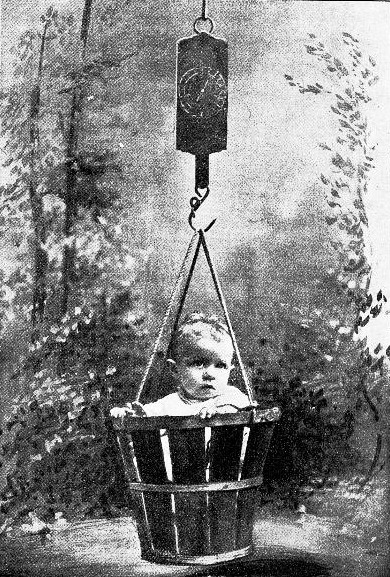
Do you post pictures of your children on the internet? Did you try not to, but find that meddlesome in-laws tarnished your goal of perfect privacy before your kid was even a week old? A new study asked parents about their kids and online privacy, and found that even when moms didn't post pictures of their newborn cuties to Facebook or Twitter, proud grandparents and aunties often did. What to do? After Priya Kumar and another researcher working at the University of Michigan talked to 22 parents about their kids and online privacy, they came up with something they call 'privacy stewardship'.
Kumar describes it for Slate:
Rather than seek to control their children’s digital footprints, parents can engage in what we call privacy stewardship. This means that parents should consider what types of information they feel are and are not appropriate to share about their children online and then communicate their preferences to family and friends. About half of the mothers in our study talked with their husbands about sharing baby pictures online. Two mothers included their sharing preferences in birth announcement emails. Rebecca asked people to avoid posting pictures of her daughter on Facebook, and Judy asked people not to post her son’s first name on Facebook.
Nevertheless, it’s impossible to control other people’s actions. Judy’s mother-in-law sometimes posted her son’s first name in Facebook comments, and Judy sent her text-message reminders when that happened. Lindsay’s sister-in-law re-posted pictures that Lindsay had shared on her own Facebook profile, despite Lindsay’s preference that others not post pictures of her daughter online. Clara’s mother shared a picture of her son Ryan’s first bath on Facebook. Clara didn’t want naked pictures of Ryan to be online, but she didn’t say anything because she wanted to honor her mother’s decision. The experiences of these mothers illustrate the inevitability that even some information that parents don’t want online will likely find its way to the Web.
Privacy stewardship acknowledges that sharing decisions vary from parent to parent. Parents can share a lot of information about their child online and still look out for their child’s best interest.
Among the top comments on the Slate piece reads: "The best thing you can do for your child's digital footprint is to name your child John Smith." For those of us who don't want to do that, the balance-establishing measures Kumar outlines are useful food for thought. You might not be able to "control" your child's online presence, she writes, but you can still impact their future privacy by talking about the issue openly with your friends and family.
Read more about the study.
